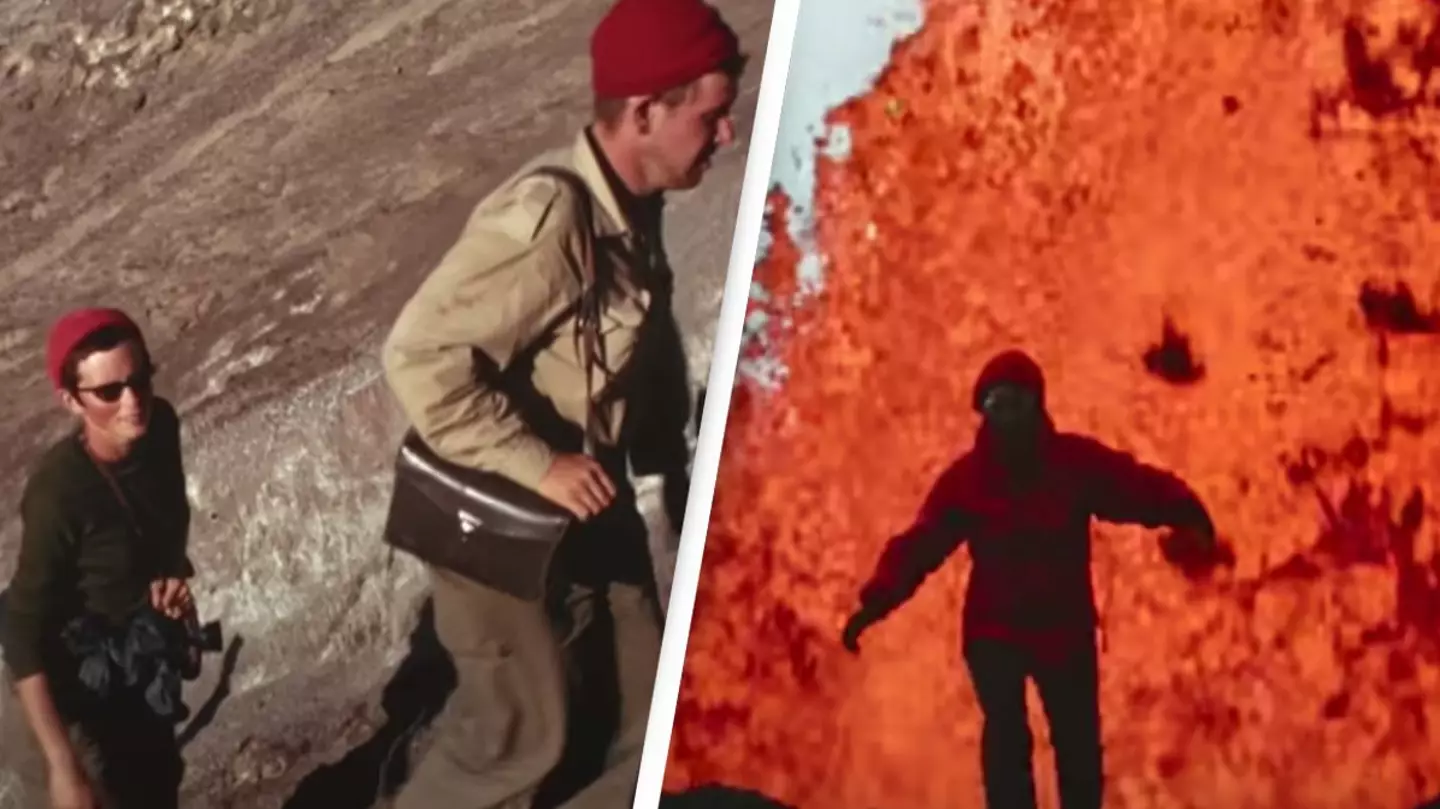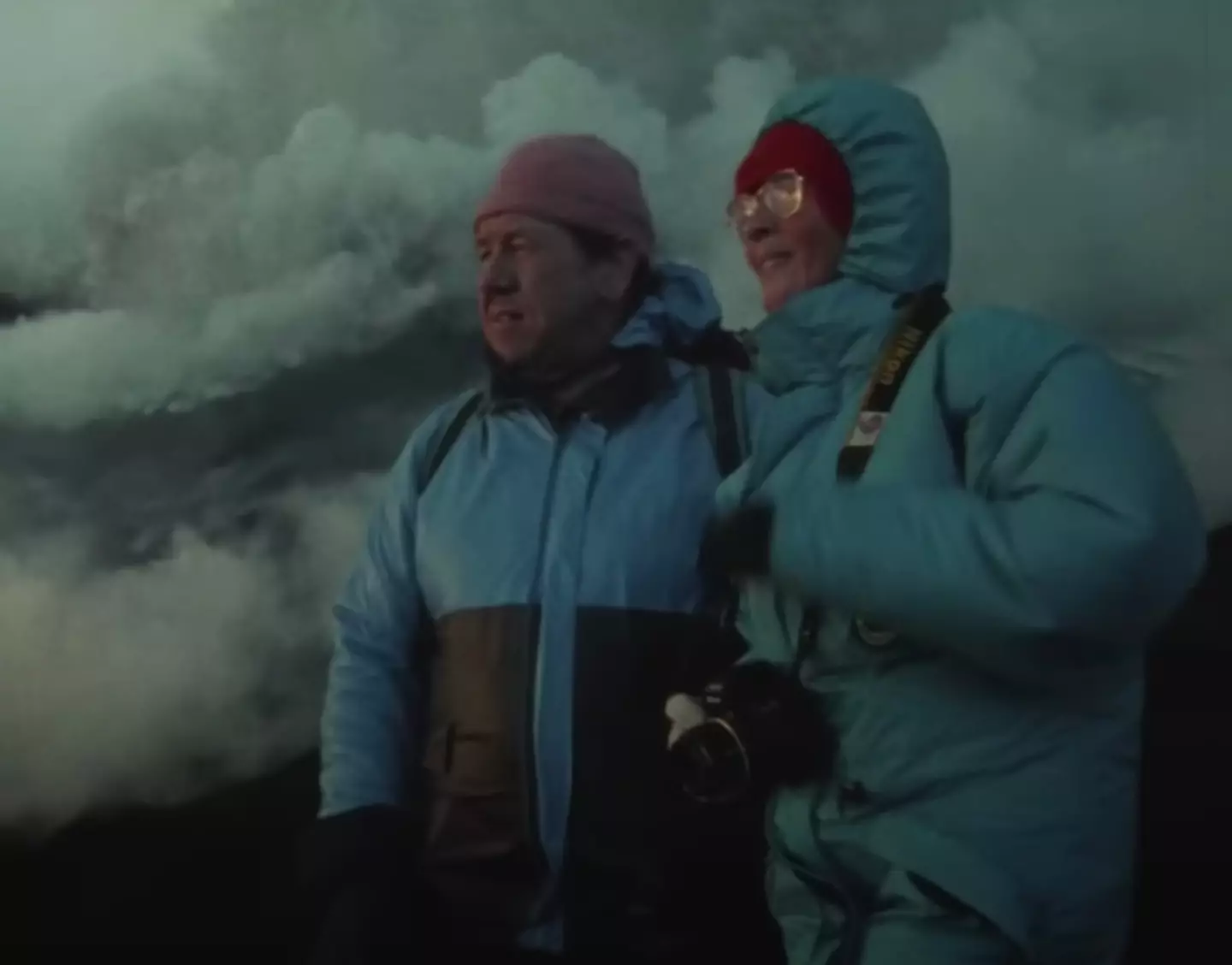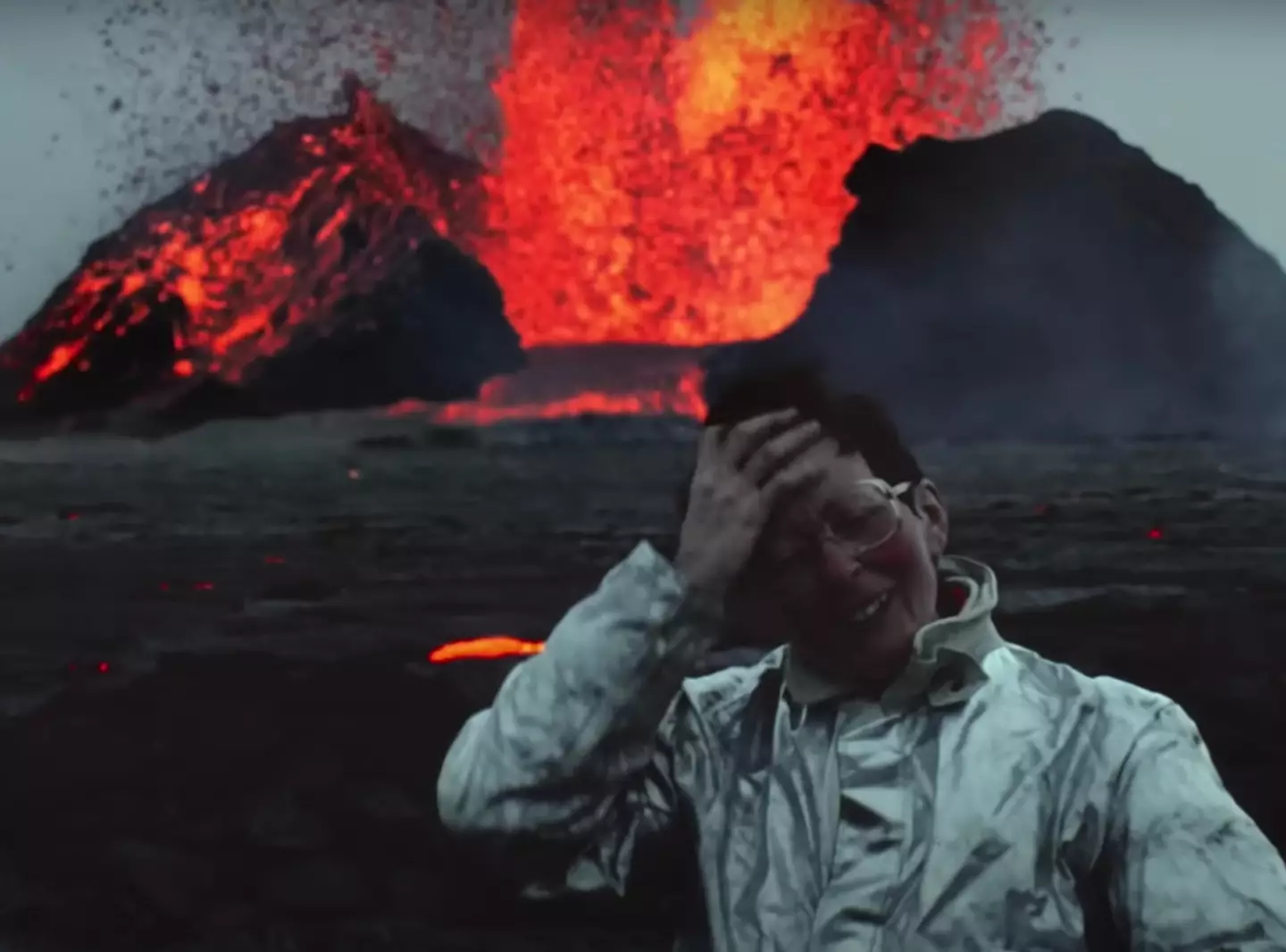
A new film tells the incredible story of a couple who spent their life chasing volcanoes.
Katia and Maurice Krafft met at the University of Strasbourg and fell in love over their passion for volcanoes.
After getting married in 1970, they travelled the world documenting some of the most spectacular eruptions.
Advert
Watch the trailer below:
Often they were the first on the scene, capturing incredible footage that soon became the envy of top volcanologists.
Even at the time, the pair admitted that their obsession with pushing the boundaries and testing themselves may seem a little strange to others — but they didn't care.
Advert
In 1979, during one of their trips, they actually had to keep watch overnight for 'volcano bombs', which are just what you would imagine: huge balls of molten rock that fire into the air.
Needless to say, the perilous situation didn't scare either of them.
"One needs to have strong nerves and not panic easily," said Maurice.

Advert
"Let's say my wife gets injured. There's nothing I can do. I'm with her as she's dying, and I can't do anything. It's horrible."
Adding: "There is the pleasure of approaching the beast, not knowing if it will catch you."
But sadly it was their passion for adventure that would eventually lead to their tragic death.
In 1991, Katia and Maurice travelled to Japan after Mount Unzen erupted.
Advert
They became caught in an unpredictable pyroclastic flow, a deadly mixture of fast-moving rock, ash and hot gas that smothered the ridge where they had been sheltering.
It was later revealed that the couple had died sitting next to one another. They were two of 43 people who lost their lives in the eruption.

The new National Geographic documentary Fire and Love tells their incredible story, from their life together to their death.
Advert
Speaking to CNN about the film, director Sara Dosa said she wanted to share the couple's story, and not simply focus on their death.
She told the outlet: "We really didn't want the audience to be focused on how Katia and Maurice might die ... instead, we hoped people would focus on how they live.
"This is a collage film that's told through ... their footage, their photographs, their writings, and we wanted the audience to know first and foremost that what they are watching is (what the Kraffts) left behind when they passed.
"So, we had to acknowledge their death."
Advert
If you have a story you want to tell, send it to UNILAD via [email protected]
Topics: Documentaries, Entertainment